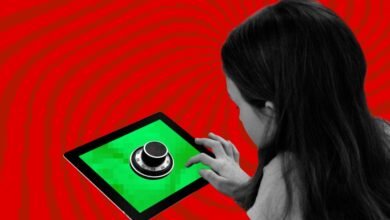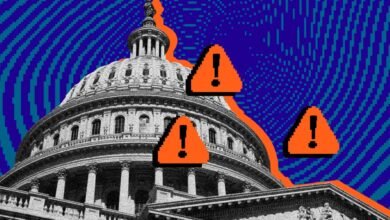Republican Purge: The Political Reckoning Has Just Begun

▼ Summary
– Following the killing of activist Charlie Kirk, some political figures are blaming critics and pushing for censorship of speech they deem unacceptable.
– Government officials are pressuring social media platforms, broadcasters, and employers to ban or punish individuals for critical comments, even when condemning violence.
– The Trump administration is using regulatory threats, lawsuits, and investigations to target media outlets and companies it disagrees with.
– Some Republicans claim their actions are retaliation against “cancel culture,” but critics argue this blurs the line between criticism and government censorship.
– There are concerns these efforts may expand to target constitutionally protected speech, despite claims to the contrary from administration figures.
The political landscape is experiencing a significant shift as a wave of pressure campaigns and retaliatory actions unfolds following the tragic shooting of conservative activist Charlie Kirk. This incident has ignited a fierce debate over free speech, government influence, and the boundaries of acceptable discourse in both public and private spheres.
Law enforcement officials have identified the suspected shooter as Tyler Robinson, a 22-year-old Utah resident. Prosecutors claim Robinson was involved with a transgender woman and held strong objections to Kirk’s rhetoric. Utah Governor Spencer Cox has stated that authorities believe Robinson acted alone and do not expect further arrests in connection with the case.
Despite this, many of Kirk’s supporters and prominent political figures have broadly implicated critics and left-leaning voices in the attack. Leaders including former President Donald Trump have suggested, without providing evidence, that organized groups are funding political violence against figures like Kirk. These allegations have translated into concrete actions: demands for social media platforms to ban users, pressure on broadcasters to cancel programs, and coordinated efforts to remove employees from both public and private sector roles based on their comments about Kirk, even when those comments also condemned violence.
Representative Clay Higgins of Louisiana articulated this stance clearly, stating on social media that “there are societal limits to the freedom of speech” and that “some speech will not be tolerated.” He pledged to use congressional authority to push for permanent bans on anyone who “belittled the assassination of Charlie Kirk.”
In one high-profile example, Disney and ABC pulled Jimmy Kimmel’s show off the air after FCC Chair Brendan Carr threatened local broadcast licenses over a brief late-night joke about the shooter’s ideology. Former Vice President Mike Pence weighed in, arguing that the First Amendment does not protect “crass or thoughtless” speech by entertainers and that employers have the right to dismiss those who violate standards.
While employers do retain the right to terminate employees for conduct issues, the involvement of government officials in applying pressure raises significant constitutional concerns. Trump himself suggested that broadcast networks airing predominantly negative coverage of him might face license revocation, a notion that blurs the line between public accountability and state-sponsored censorship.
Even prior to this incident, the Trump administration had taken aggressive steps to influence media and corporate behavior, including pushing for a multi-million dollar settlement with Paramount and initiating FCC investigations into broadcasters’ diversity initiatives. Legal experts warn these actions may infringe on First Amendment protections. A recent $15 billion defamation lawsuit filed by Trump against The New York Times was dismissed by a judge as “improper and impermissible.”
There are indications that these efforts may expand further. Attorney General Pam Bondi suggested the Justice Department would pursue those engaged in “hate speech,” despite Kirk’s own previous assertions that hate speech is legally protected. She later clarified that only speech crossing into threats of violence is not protected.
Vice President JD Vance, while hosting Kirk’s podcast, dismissed concerns from what he called “the crazies on the far left” who fear the administration is targeting protected speech. Instead, he emphasized a focus on “the NGO network that foments, facilitates and engages in violence.” He argued that political violence is not a “both-sides problem,” asserting that one side bears greater responsibility, a claim echoed by Trump, who stated that “the radical left causes tremendous violence.”
A former Justice Department study, since removed from its website, had previously indicated that far-right attacks surpassed all other forms of domestic extremism. Its disappearance has raised questions about the administration’s commitment to transparent data.
Many Republicans frame these actions as a response to so-called “cancel culture” from the left. However, the blending of governmental power with public shaming campaigns risks eroding the distinction between criticism and state-led censorship. The current administration’s approach paints a concerning picture of how political retribution may evolve, with little indication of easing in the near future.
(Source: The Verge)



